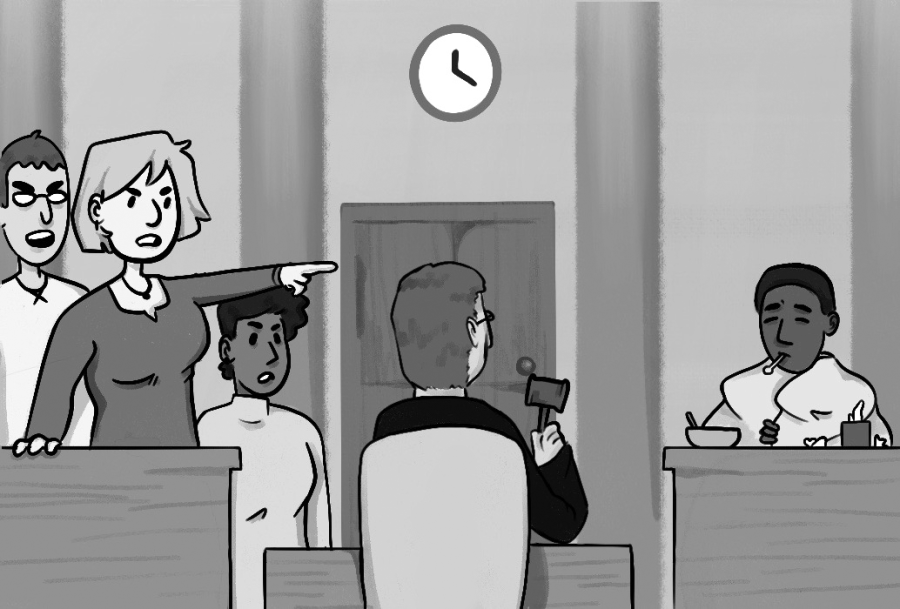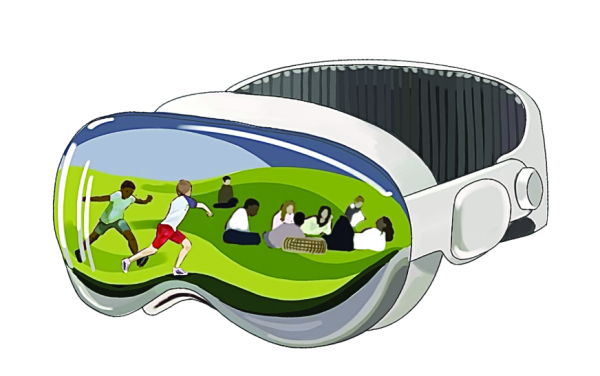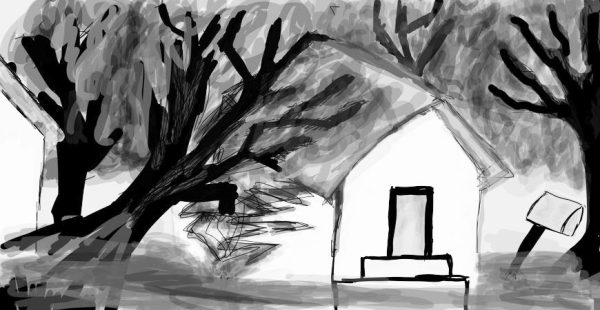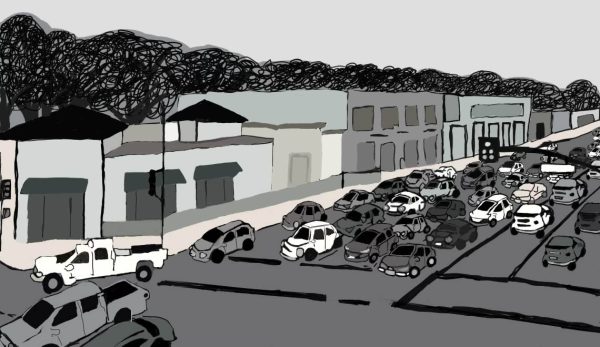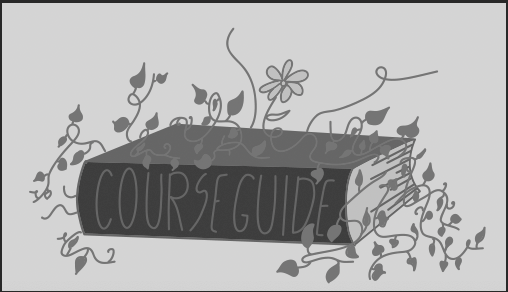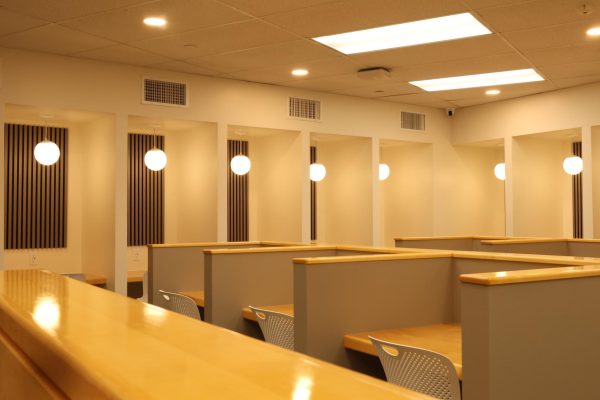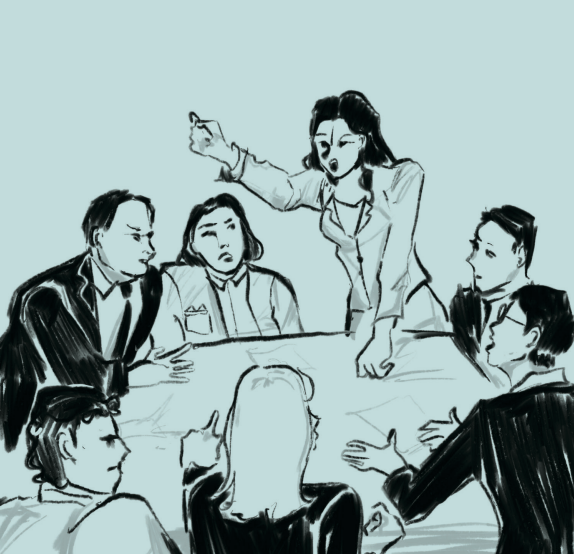Law and Omicron: Trial by Worry
January 20, 2022
As winter break came to a close, students eagerly awaited a return to on-campus education, only to be met with two disappointing days of asynchronous assignments. What could have been a triumphant beginning to the new year was instead a grim reminder of the omicron variant’s soaring infection rates. Although the administration allowed students to attend school in person again by the end of the week, 8% of our community remained at home sick with COVID-19, and we all felt their absence on campus. Classrooms felt empty, the Quad was less lively and we anxiously wondered who might soon get sick.
Yet we remain grateful for the opportunity to experience in-person school. It is easy to see the benefits of being on campus: Learning is more focused and personalized, social interactions feel more genuine and extracurricular opportunities are more enriching. It is crucial to recognize that we will only remain on campus if we develop further transparency, keeping students and faculty fully informed so they may take the necessary precautions to stay safe.
When a student receives a positive COVID-19 test result, their first instinct may be to conceal the results of their test. After all, it can be embarrassing and nerve-wracking to alert friends, peers and colleagues that you have exposed them to COVID-19. The student may fear judgment or condemnation from others for unintentionally risking their safety. As a result, contracting COVID-19 comes with an immense amount of guilt.
Although members of the community have a right to be anxious or upset when they discover a close contact may have infected them, we must be careful not to make assumptions in regards to a positive COVID-19 test. There is a misconception that those who contract COVID-19 must have made some irresponsible mistake or demonstrated a lack of consideration for others, but that is not necessarily the case. With the omicron variant, it is impossible to say whether somebody contracted the sickness from irresponsible risk-taking or simply got unlucky. It is still possible to be infected at a grocery store, family dinner or pharmacy, even though most associate contracting the illness with a crowded music concert or sports game. When a member of our community gets sick, jumping to conclusions or making rash accusations is disrespectful. Unsafe behavior warrants criticism, but not everybody with COVID-19 has necessarily acted thoughtlessly.
Most would like to pretend there is some justice in who gets sick and who does not: Those who do not take safety precautions will face consequences, and those who protect themselves will reap the benefits. But many of us, unfortunately, are infected by chance. The omicron variant is highly infectious: In the last 14 days alone, the case count surged by 270%, according to the New York Times. Chief Medical Advisor to the President of the United States Dr. Anthony Fauci said the omicron variant is so easily transmissible that it will likely infect almost all U.S. citizens, according to CNN. In-person learning requires students to gather in classrooms for hours at a time, so contracting COVID-19 is a distinct possibility for many members of our community.
Regardless of why somebody contracted COVID-19, shaming them only discourages transparency. They’ll be inclined to conceal symptoms or positive test results when criticized for contracting the virus, making contact tracing and quarantining less effective. Similarly, if we contract COVID-19, we must inform the community of our health status regardless of the discomfort we may feel. It is immature and irresponsible to lie to avoid consequences. Just as those who are sick have a right to not be branded as selfish, community members have a right to be informed of the truth.
The administration must send a message to our community that we prioritize safety, and safety can only be achieved through honesty. This should include publishing a regularly updated COVID-19 case count and reminding students and faculty to be both diligent in providing information and to be respectful in receiving it. We need daily updates in order to make the best decisions regarding our own health, and we need members of the community to be more open with each other so this information is accurate. Ideally, the omicron variant wave has already peaked and soon, we will not need to take as many precautions. For now, though, we should have the courage and sincerity to protect those around us. Our health and quality of education depend on it.



































